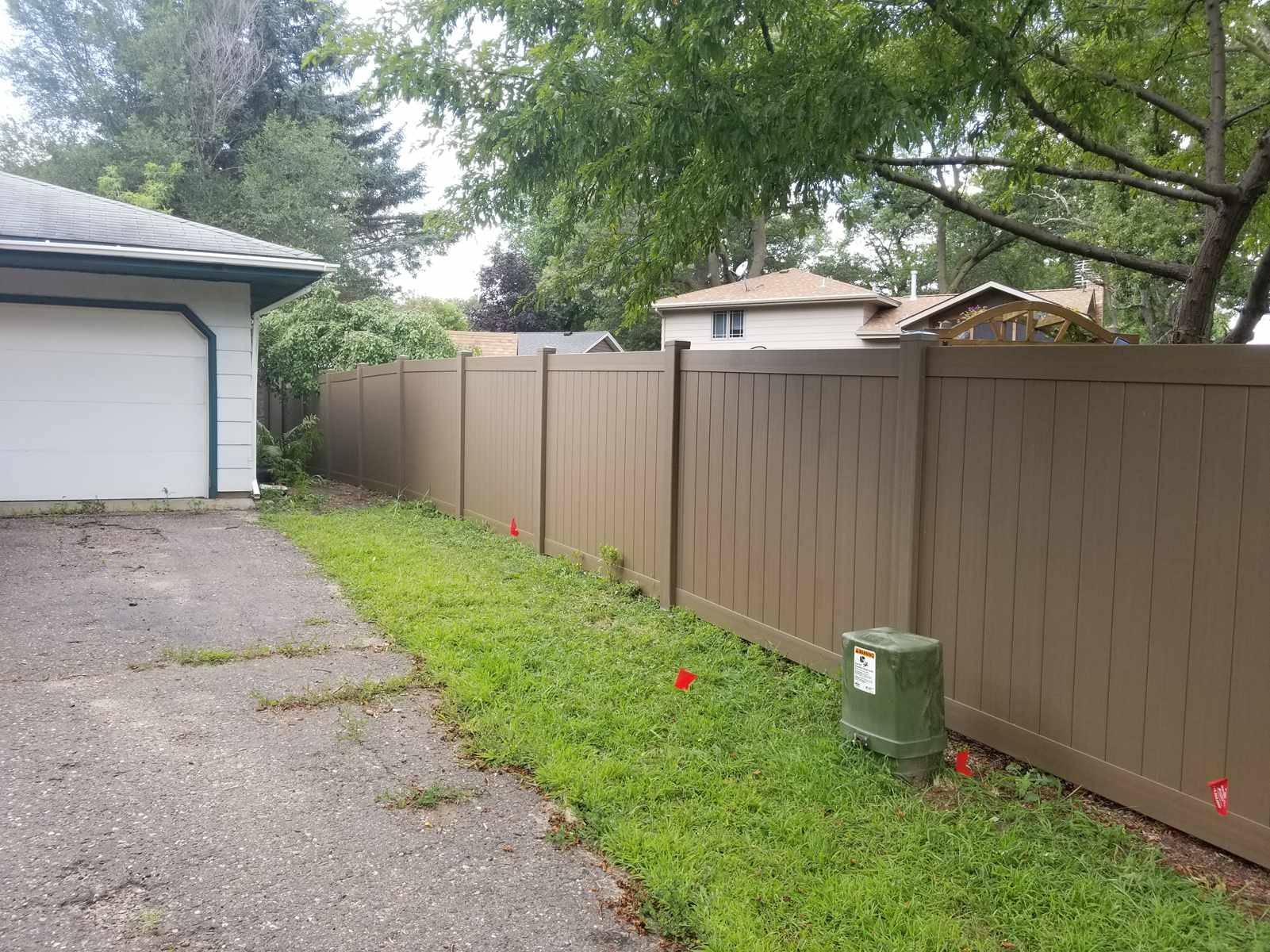All of the Ways You Should Clean Your Vinyl Fence
More and more homeowners are beginning to see the benefits of going vinyl, over other metal fence, for their fencing solution. This rise in popularity is mostly due to the rugged and long-lasting appeal that a tough vinyl material provides. Unlike surfaces like wood, vinyl doesn’t rot, splinter, get pests, or warp.
This is especially important for climates in the Midwest where all four seasons hammer away at your fence. Harsh winters will eat away at wooden fences and cost you time and money in the long run.
Plus, vinyl fences don’t need to be painted or sanded down. All of these reasons and likely many more, are why you decided to go vinyl for your property. Well, you probably heard that these types of fences are essentially maintenance free. And this is technically true. But there are some ways you can keep your fence in tip-top shape with a few simple steps. Unfortunately, nothing in life is completely maintenance free.
If you want to get a longer lifespan out of your vinyl fence there are a few details you can pay close attention to and a few steps you can take to optimize your enclosure.
Ideal Cleaning Solutions and Techniques
One of the more simple but still important vinyl fence maintenance steps is how you clean your fence. Depending on a few factors like how dirty the fence is or how large the enclosure is will impact how you clean and what you clean with. Don’t use abrasive cleaners that could scratch or damage the vinyl. Also, stray away from scouring pads as these are also rough enough to scrape away your vinyl finish.
Light Cleaning
If you’re looking at minor dirt, pollen, dust, or chalky residue — we’d recommend using your garden hose to spray it down. If you want to get a better result, you can use a sponge with warm soapy water.
Tough Stains
Tough stains require a bit more elbow grease. Rubber marks, tar, or grease stains might not come off with water and soap. For these, we would recommend mineral spirits with a soft cotton cloth. If the stain remains, try holding the dampened cloth on the stain for 30 seconds or so, that should break down tougher stains. These can be dangerous so be sure to take proper precaution when handling paint mineral spirits. Wear rubber gloves and goggles to protect yourself.
Mildew and Other Stains
Dirt and other debris isn’t the only culprit that could plague your fence with stains. Depending on where you live or what your fence is near, you may face algae or mildew staining. These could appear in green, yellow, or black patches. Unfortunately, simple soap and water techniques won’t work on these stains either. Even if they come away after a hose down or light scrubbing, they may return because soap and water do not kill the source. To keep these annoying stains away, you’ll have to use chlorine bleach. If you’re looking for a non-toxic or more organic solution, try white vinegar.
When using these cleaning solutions, protect yourself with rubber gloves and rubber eye protection. After you have poured about a gallon of water into a bucket, slowly pour roughly one cup of white vinegar or chlorine bleach in along with a half cup of liquid soap detergent. Make sure to mix this solution well and use something like a large sponge to get rid of the stains.
To prevent algae stains in the future, make sure to keep grass trimmings off your fence. If you’ve just mowed the lawn, take a few minutes to check your fence for clippings and hose off any that stick around.
Larger Fence Cleaning
For big enclosures like those that may surround your entire property, it may be difficult to clean it all with a garden hose or sponge. For these larger fences, we recommend using a power washer. The high pressure and efficiency of these washers should easily do away with light stains or debris.
For tougher stains, mildew, or algae you can still use a power washer. You’ll need to use concentrated all-in-one detergent. These are made for pressure washers and will make cleaning a large fence a breeze.
Like with any high-pressure machinery, exercise caution by wearing boots, gloves, goggles, and something to protect your face. If you’re worried about damaging the surface of your fence with a high-pressure washer, use a wide-spray setting or nozzle. Spray at an angle as well to reduce the amount of pressure and protect yourself from blowback.
Keep Your Fence Looking New

If you take the time to regularly wash your fence, you should have no problem eliminating many of these staining concerns. A simple spray down or sponge wash should keep your fence looking fresh.
Vinyl fences last a long time, but they’ll last even longer if you take proper care of them by cleaning them regularly and keeping grass clippings away. At Northland Fence we used high quality vinyl fence supplies.


